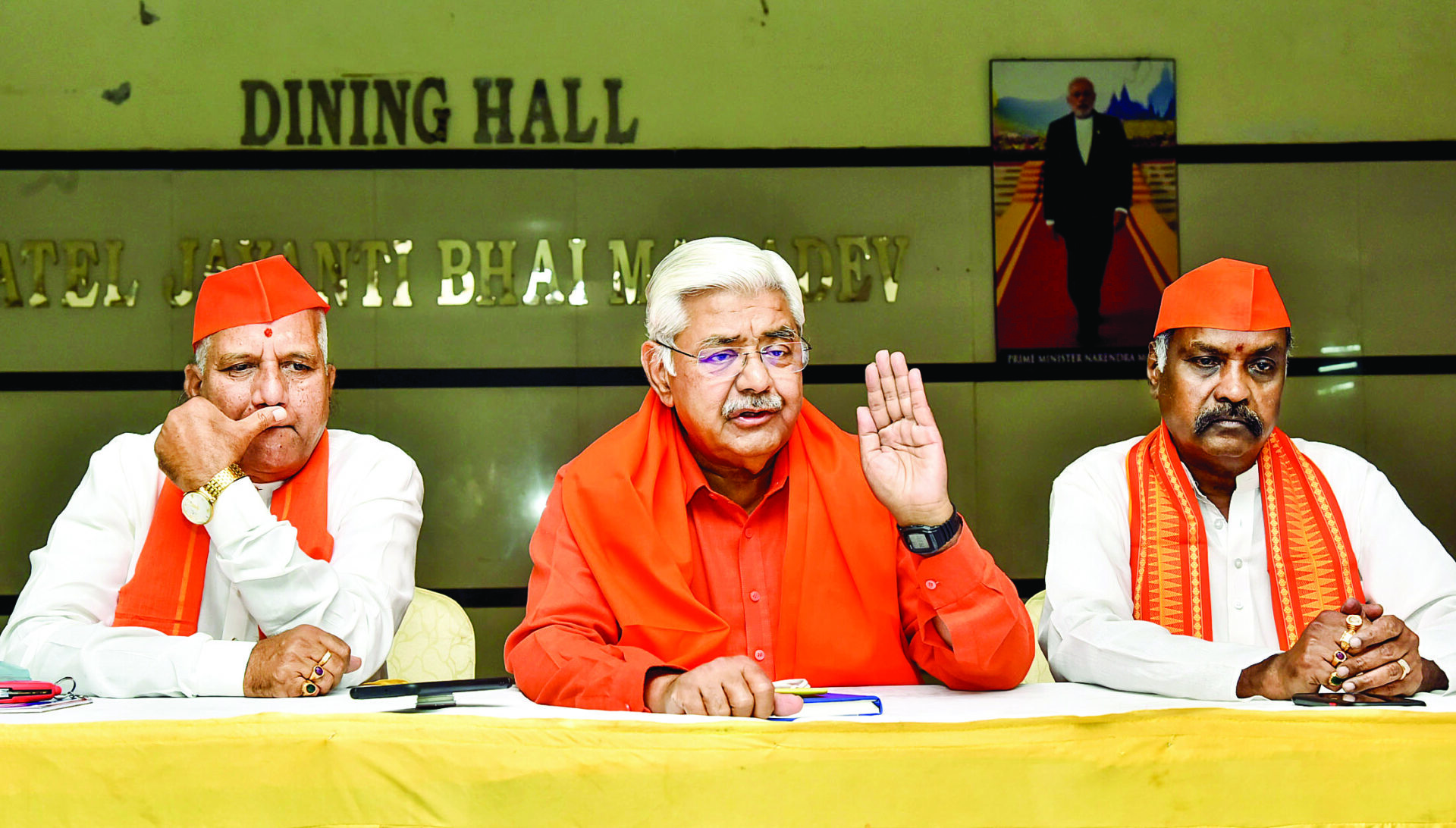‘Kumbh Mela attracts participants from around the world, and the Uttar Pradesh government has worked to ensure that even those unfamiliar with such events can comfortably attend.’
The Kumbh Mela, one of the largest spiritual gatherings in the world, stands as a powerful symbol of unity, culture, and Hindu values.
In an exclusive interview with The Sunday Guardian, Vishwa Hindu Parishad (VHP) president, Alok Kumar sheds light on the role of the VHP in promoting inclusivity at the Mela, the significance of the event in fostering Hindu unity, and how the leadership of Prime Minister Narendra Modi and Uttar Pradesh Chief Minister Yogi Adityanath have transformed the Maha Kumbh Mela into a global celebration of spirituality.
Excerpts:
Q: What role does the VHP play in organizing or supporting the Kumbh Mela?
A: While the VHP doesn’t directly organize the Kumbh Mela, we play a key role in ensuring wide participation. We focus on inviting diverse communities, including tribal groups, Scheduled Castes, and religious leaders from different sects like Jainism, Sikhism, and Buddhism.
Over the years, we’ve worked with the Uttar Pradesh government to encourage participation from regions such as South India, East India, and the Northeast, where involvement in past Mela events has been limited. We also invite saints and religious figures from around the world, organizing gatherings specifically for youth and women during the Sant Sammelan.
Q: Do people from other religions participate in the Kumbh Mela?
A: We haven’t extended direct invitations to people from other religions, our focus has been on inviting religious leaders from the Indic traditions, like Hinduism, Jainism, Sikhism, and Buddhism, to join the event.
Q: How does the Kumbh Mela serve as a platform for promoting Hindu unity and values?
A: The Kumbh Mela plays a vital role in promoting Hindu unity. Most camps organize free kitchens where people of all backgrounds can eat together, without distinctions of caste or creed. These shared experiences help create a sense of harmony. Along with this, spiritual teachings, such as the Bhagavad Gita, are imparted during the Mela, further fostering Hindu values. The entire experience encourages individuals to embody religious virtues, live harmoniously, and absorb the core teachings of Hindu culture.
Q: In the modern context, what is the significance of the Kumbh Mela for Hindus?
A: The Kumbh Mela holds great relevance today, with an estimated 400 million people participating. The event offers an opportunity for spiritual purification at the confluence of the Ganga, Yamuna, and the Saraswati. It is remarkable that such a massive gathering happens peacefully, without significant law-and-order issues. Organizing the event itself, with provisions for food, water, shelter, and sanitation for millions, is a monumental task. It’s not just an event; it’s a symbol of unity, where people from all walks of life come together in a cosmopolitan environment, fostering spiritual connection.
Q: How does the Kumbh Mela contribute to promoting Hindu culture and spirituality across the globe?
A: The Kumbh Mela is a global platform for spreading Hindu spirituality. It attracts participants from around the world, and the Uttar Pradesh government has worked to ensure that even those unfamiliar with such events can comfortably attend. The facilities provided allow participants to experience Hindu spirituality and culture first-hand, which, in turn, helps spread Hindu values across the globe.
Q: How has Uttar Pradesh Chief Minister Yogi Adityanath supported the promotion of Hinduism and its practices, especially through events like the Kumbh Mela?
A: The government’s role is primarily to provide the infrastructure and support necessary for such large gatherings. Chief Minister Yogi Adityanath has ensured that all required facilities are in place, from sanitation to road congestion management. His hands-on involvement ensures that the Kumbh Mela experience is as smooth as possible for millions of visitors.
Q: What role do you think Prime Minister Modi or Chief Minister Yogi Adityanath has played in promoting Hindu values, both nationally and globally?
A: Hinduism is a way of life, not just a religion. Global practices like Yoga and Ayurveda, which have gained widespread recognition, are rooted in Hindu traditions. These contributions, along with events like the Kumbh Mela, have helped spread Hindu values globally. The promotion of Yoga and Ayurveda, especially during the Covid-19 pandemic, has increased the acceptance of Hindu practices worldwide.
Q: How has the support from these two leaders influenced the international perception of Hinduism?
A: Unfortunately, Hinduism has often been misrepresented due to negative propaganda, particularly by groups that criticize India and its practices. These misconceptions about religious freedoms and the safety of minorities in India are not always rooted in reality. It’s important to counter these false narratives and show the world the true nature of Hinduism, which is about inclusivity and religious harmony.
Q: How can these challenges be addressed to counter the misinformation and propaganda?
A: We’re actively working to address these challenges by creating educational content, studies, and modules to counter misinformation. With sustained efforts, we believe the truth will prevail, and Hindus will continue to engage with the world to defend the authenticity of their practices.
Q: Is there anything else you would like to add about the Maha Kumbh Mela?
A: The Kumbh Mela is about the quest for Amrit, symbolizing the pursuit of something eternal and beyond death. It encourages Hindus to shed selfish desires and become part of a greater whole. It’s a reminder of dharma and the pursuit of virtues, nurturing spiritual growth and preserving Hindu values for future generations.

